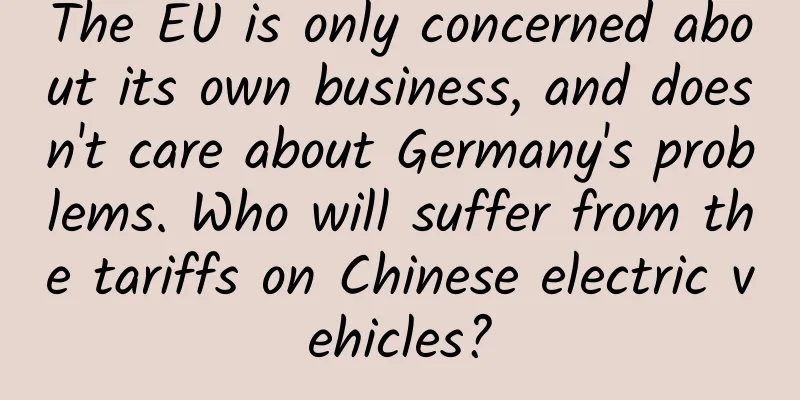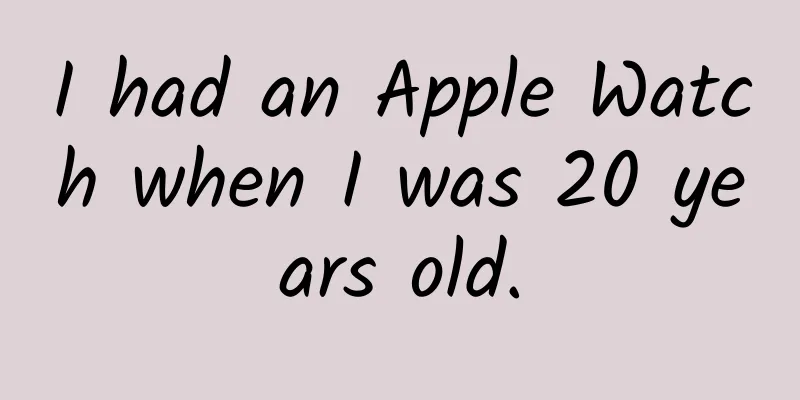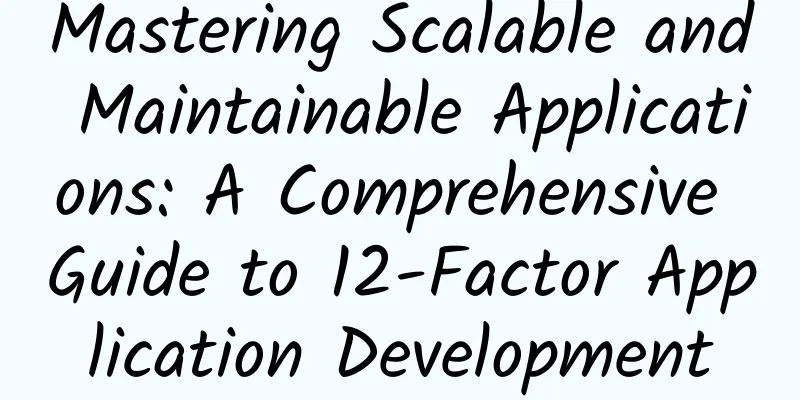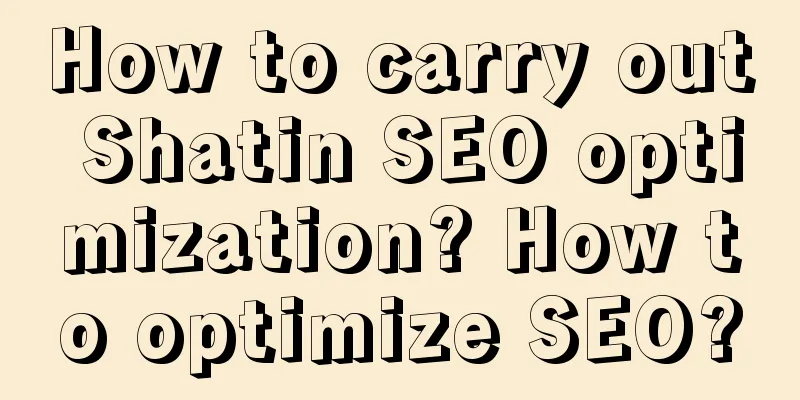The EU is only concerned about its own business, and doesn't care about Germany's problems. Who will suffer from the tariffs on Chinese electric vehicles?

|
On June 12, the European Commission announced that it would impose additional tariffs of up to 38.1% on electric vehicles imported from China. If the two sides cannot reach a solution through negotiations in the coming period, these measures will officially take effect from July 4. The shoe has finally dropped. This issue has been a fuss within the EU for several months. Now it has finally been released, and the result is not unexpected - when China's solar photovoltaic industry entered the European market, it also encountered this kind of unfair treatment. This incident was caused by a small number of countries within the EU, and Germany has been actively mediating to prevent it. German Chancellor Scholz publicly stated that if China-EU trade remains "fair and free", the German automotive industry will be able to compete with automakers in Asian countries, and adding tariffs may make everything more expensive. Scholz is a wise man. He understands the simple truth that if you hurt the enemy by 800, you will hurt yourself by 1,000. Especially now that China has become the king of the electric vehicle industry chain, the final superimposed costs will be absorbed by EU consumers themselves. Norwegian Finance Minister Werdum further pointed out that Norway will not follow the EU in imposing temporary anti-subsidy duties on Chinese electric vehicles. He said that imposing tariffs on Chinese electric vehicles "has nothing to do with this government and is not advisable." Why do some EU countries push for this? China has an overcapacity of electric vehicles? China has subsidies for electric vehicles? These reasons are all untenable. The real reason why the EU is targeting Chinese electric vehicles is that Chinese new energy vehicle manufacturers have almost no technical shortcomings. From patent infringement, trademark registration to human rights issues, they can't think of any countermeasures no matter how hard they try, and can only resort to the last resort: tariffs. When the EU played the tariff trump card, it actually admitted defeat and gave up direct competition. Only by raising tariff barriers can the EU's dying electric vehicle industry be protected. Once competition is completely liberalized, Chinese manufacturers will quickly defeat most EU electric vehicle manufacturers. The EU's plan is simple. First, it will create trouble for Chinese manufacturers, raise costs and slow down their process of occupying the European market. Then, it will use this window of opportunity to support the development of EU car companies and try to enable them to have the ability to compete head-on with Chinese new energy manufacturers, thereby gradually cultivating a local new energy vehicle industry chain in the EU. In addition, the EU has another important purpose for Chinese electric vehicles, which is to force Chinese manufacturers to build factories in the EU, so as to obtain technology output from Chinese manufacturers and then improve the technological level of the EU's local new energy vehicle industry. This time, the EU is targeting China's "imported electric vehicles". If BYD and other manufacturers build factories and R&D centers in EU countries, they will not be affected by these tariff policies. China's perfect core technology and complete new energy industry chain make some EU countries salivate, so they use tariff bills to force Chinese companies to speed up technology transfer. Exchange market for technology. Does this sentence sound familiar? However, thirty years later, the identities of the technology holders and transferees have completely reversed. Objectively speaking, this goal is not difficult to achieve. Before the tariff policy came out, BYD and other manufacturers had already started to build factories in the EU, which was originally part of the overseas expansion of Chinese auto companies. The latest EU tariff policy has only accelerated this process. The question now is, can EU car companies really stand up if Chinese electric vehicles are kept out? This is probably just a beautiful fantasy, for a simple reason: China's new energy industry chain took 30 years to build, and the EU cannot catch up in a short period of time. Without technology and supply chain, even if tariffs are imposed on Chinese electric vehicles, it will be of no avail. In addition, the product performance of China's new energy vehicles is far ahead of their local manufacturers. Even if the price increases a little, consumers will not give up buying them. The last time the EU used anti-dumping and countervailing duty investigations against Chinese products was solar photovoltaic products, with the same purpose as it is now targeting Chinese electric vehicles. However, after a few years, the EU still made no progress in photovoltaics and eventually quietly lifted the sanctions. If nothing unexpected happens, the EU's measures against Chinese electric vehicles will have the same outcome as that of photovoltaic products. So far, more than 90% of the EU's photovoltaic products still come from China. The EU's domestic automobile industry is strong, so this is unlikely to happen, but there should be no doubt that Chinese electric vehicles will become the dominant force in the EU market in the next few years. In contrast, the EU's new tariff policy has a much greater impact on the EU itself than on the Chinese market. This is a math problem. The sales volume of the Chinese passenger car market has been maintained at more than 20 million vehicles for many years. What will happen to the EU's cars in China in the future? As Volkswagen worries: the negative impact of tariffs outweighs any potential benefits to the European, especially German, auto industry. If the Chinese market adopts the same tax increase policy on cars from the EU, the outcome is predictable. The cars are already unsalable and at a discount, so who will sell them to if the tax is increased? Therefore, everyone in Germany, from the Prime Minister to the CEOs of major car manufacturers, has called for stopping the introduction of this bill. However, the EU is so fragmented that the countries that proposed the bill do not export many cars themselves, so there is no psychological pressure to propose tariffs. Anyway, the bill is ready for the Germans to pay. More importantly, the EU is not the only market in the world. Chinese electric vehicles are gaining ground in Southeast Asia, South America, the Middle East and other regions. They have now become the dominant force in automobile markets such as Thailand and Brazil. The EU's small moves will not fundamentally shake the progress of China's new energy vehicles. The tariff increase also reminds Chinese manufacturers that when Chinese manufacturers go overseas, they will definitely encounter various "unexpected tactics", and tariff increase is just one of many sanctions. Even if they build factories in the EU, they will encounter various unexpected troubles, which need to be handled with caution. But in the long run, these are just minor incidents when Chinese manufacturers go overseas. New energy, carbon neutrality, energy conservation and emission reduction are needed all over the world, so the prospects for electric vehicles will not be bleak, and the advantages of Chinese manufacturers will not disappear. It is the EU itself that has not learned the lesson from the photovoltaic issue and has begun to wield the tariff stick again, which will ultimately only continue to increase the cost of car purchases for EU consumers. If you block, it will overflow; if you unblock, it will flow smoothly. It is better to unblock and guide than to block. The Europeans are still so arrogant that they still don't want to understand this Chinese truth from 3,000 years ago. They still clean up the snow in front of their own doors, and don't care about the frost on the German tiles. Germany is feeling really miserable at this moment. As a winner of Toutiao's Qingyun Plan and Baijiahao's Bai+ Plan, the 2019 Baidu Digital Author of the Year, the Baijiahao's Most Popular Author in the Technology Field, the 2019 Sogou Technology and Culture Author, and the 2021 Baijiahao Quarterly Influential Creator, he has won many awards, including the 2013 Sohu Best Industry Media Person, the 2015 China New Media Entrepreneurship Competition Beijing Third Place, the 2015 Guangmang Experience Award, the 2015 China New Media Entrepreneurship Competition Finals Third Place, and the 2018 Baidu Dynamic Annual Powerful Celebrity. |
<<: After upgrading to 4G, which mobile phone has the fastest internet speed?
Recommend
Analysis of the marketing and promotion model of UnionPay QuickPass!
In the past two years, the eye-catching red adver...
A brief history of operations: 20 years of development and evolution of Internet operations (continued)
(Continued from the previous article) 2009-2013: ...
What functions does a hotel management mini program need?
As we all know, mini programs are divided into fr...
How to use the points system to stimulate user retention
A reasonable points system generally consists of ...
How to build joint operation of online shopping mall and offline stores?
Affected by the epidemic, most of the physical bu...
What is "lip rot"? Don't take it lightly!
Expert of this article: Wang Weibao, Endocrinolog...
108 Internet Marketing Tools/Websites
Ever since the Wei Zexi incident broke out last y...
Providing offline support for mobile apps
Offline support for mobile applications can be un...
Meteorological Analysis | Overview of Mohe Winter Climate in 2020/2021 under the Background of La Niña
Text/Photo by Wu Shusen La Niña is a climate phen...
The "Color Business Practice Course" not only teaches you how to match colors, but also covers all color issues in one go!
Course Catalog [Promotional Video] More than just ...
How to write copy that highlights user pain points? Use these 4 routines!
Users don't choose the best option, but rathe...
A rough man's home version of hip camp 2.0
A rough man's family version of hip camp 2.0 ...
iOS jailbreaking popularity has dropped significantly, and two major Cydia repositories have been shut down
ModMy announced today that it has archived its de...
Providing more convenience and resources for developers Amazon strongly supports Cocos Engine
At the recently held Cocos 2014 Developer Confere...
Watch the ever-changing Earth from afar: How are meteorological satellites launched?
The launch vehicle gives the artificial satellite...









